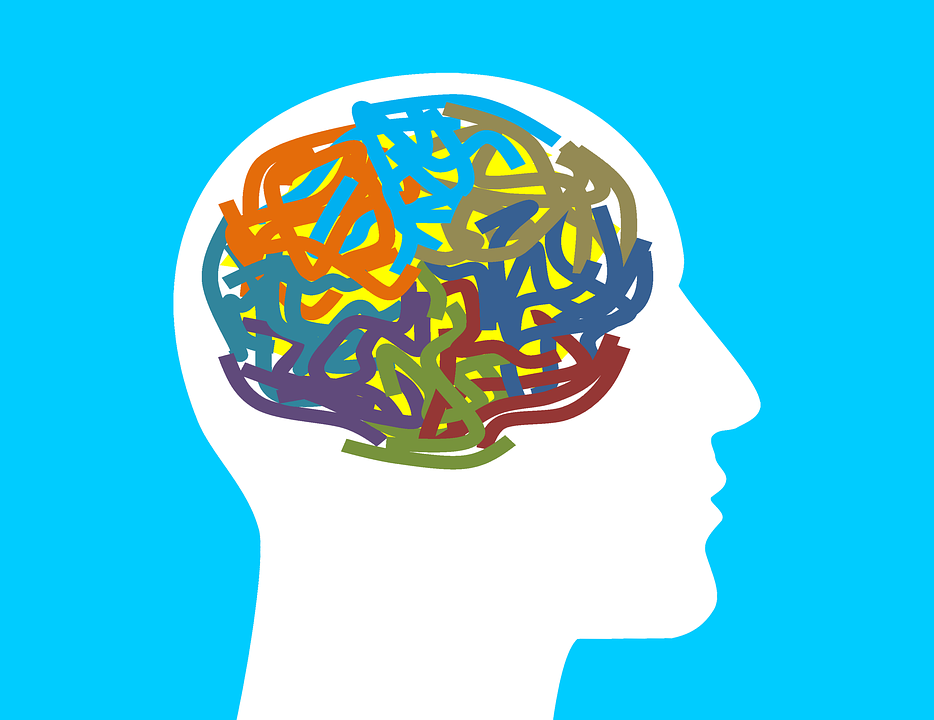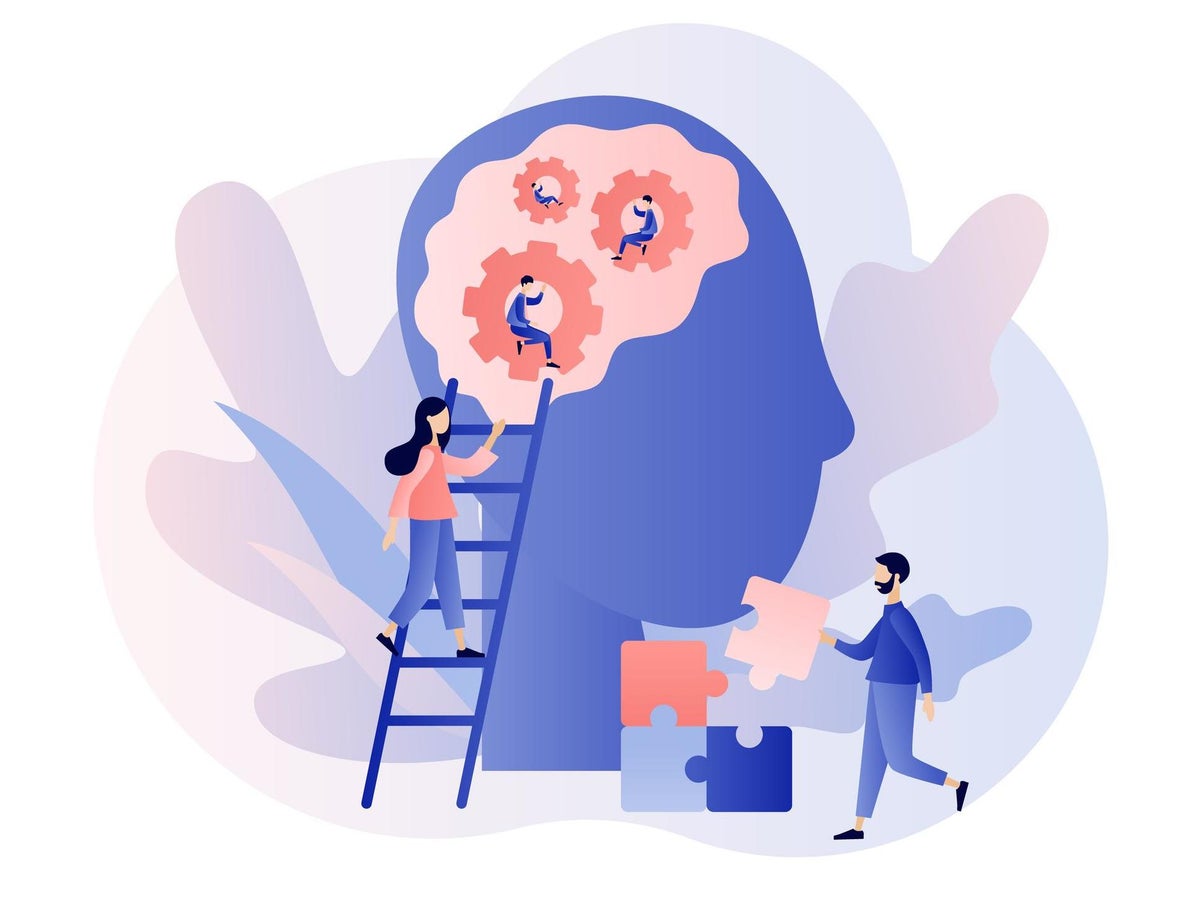Opening the Secrets of Mental Wellness: An Overview of Therapy and Treatment Options
Psychological health and wellness is a complicated and critical aspect of overall health. Countless therapy and therapy alternatives exist to deal with numerous psychological obstacles. Each approach offers unique benefits and techniques customized to individual requirements. Understanding these options is necessary for anyone seeking to enhance their mental wellness. Marriage Counselling. What variables should one think about when discovering these opportunities? The solution may expose a course to a healthier emotion
Understanding Mental Health and Its Relevance
Psychological wellness includes the emotional, psychological, and social wellness of individuals, substantially influencing how they think, really feel, and act. Its relevance can not be overstated, as it impacts every element of life, consisting of partnerships, work performance, and overall lifestyle. People with excellent psychological health often tend to handle stress better, maintain much healthier connections, and make informed choices. On the other hand, poor psychological health and wellness can lead to emotional distress, impaired performance, and various mental illness, which might require specialist treatment. Recognizing mental health and wellness is vital for identifying the indicators of distress and the requirement for support. Recognition also advertises compassion and lowers stigma, motivating people to look for help when essential. By prioritizing mental health and wellness, communities can foster environments that support emotional well-being, inevitably leading to healthier, more resistant people. This structure acts as a crucial step toward effective psychological health counseling and treatment choices.
Kinds of Counseling Approaches
Counseling strategies differ extensively, each tailored to satisfy the one-of-a-kind needs of people looking for support. Among one of the most usual types are cognitive-behavioral therapy (CBT), which concentrates on determining and altering adverse idea patterns, and person-centered therapy, which stresses compassion and approval. Psychodynamic therapy checks out subconscious procedures and previous experiences to comprehend current habits, while solution-focused short therapy aims to recognize services instead than examine problems.Additionally, household therapy addresses relational dynamics and communication within households, cultivating much healthier interactions. Team counseling supplies a communal room for participants to share experiences and support each other. Various other techniques include existential therapy, which motivates individuals to locate meaning and objective, and art or songs therapy, which utilizes creative expression as a restorative device. Each strategy uses distinct techniques and ideologies, enabling clients to locate the most ideal approach for their individual growth and healing trips.
Exploring Various Treatment Techniques
In the domain name of psychological health counseling, various therapy modalities supply distinct methods to treatment. Cognitive Behavior Treatment stresses the link in between thoughts and habits, while Psychodynamic Therapy checks out subconscious influences on psychological wellness. In Addition, Mindfulness-Based Methods advertise present-moment awareness as a way to boost emotional regulation and general mental health.
Cognitive Behavior Modification
Cognitive Behavior Therapy (CBT) attracts attention as one of the most widely exercised and researched techniques in mental health and wellness therapy. This method concentrates on the interconnection between habits, feelings, and thoughts, stressing that altering negative thought patterns can result in improved emotional wellness and behavioral adjustments. CBT is structured, normally entailing a limited variety of sessions, and intends to gear up people with practical skills to handle their signs. It is effective for a range of conditions, consisting of anxiety conditions, depression, and post-traumatic stress disorder. By using strategies such as cognitive restructuring and exposure therapy, CBT fosters strength and empowers customers to confront difficulties head-on, making it an important choice in the landscape of psychological health treatments.
Psychodynamic Therapy Strategies
Psychodynamic treatment approaches provide a deep exploration of the unconscious mind and its influence on habits and emotional health. Rooted in Freudian concept, these approaches stress the value of early childhood years experiences and unconscious disputes. With techniques such as cost-free organization, dream analysis, and transfer, people acquire understanding into their thoughts and feelings, cultivating self-awareness and understanding. This therapeutic method motivates clients to discover quelched feelings and unresolved problems, which can be essential in addressing current emotional challenges. By analyzing the interaction between existing actions and previous experiences, psychodynamic treatment intends to promote psychological recovery and personal development. Eventually, it supplies a structure for people to check out complicated internal characteristics that influence their psychological health.

Mindfulness-Based Strategies
While traditional treatments frequently concentrate on past experiences, mindfulness-based strategies focus on present-moment understanding as a pathway to psychological wellness. These techniques, including mindfulness-based cognitive treatment (MBCT) and mindfulness-based stress decrease (MBSR), encourage individuals to engage completely with their thoughts and sensations without judgment. Specialists find out to observe their frame of minds, cultivating a better understanding of emotional triggers and reactions. This method not just alleviates symptoms of anxiety and anxiety however likewise enhances overall mental durability. By incorporating mindfulness workouts, such as reflection and deep breathing, customers grow a sense of peace and clearness. Inevitably, mindfulness-based strategies empower individuals to browse life's challenges with increased awareness and acceptance, promoting a much healthier partnership with their emotions and ideas.
The Duty of a Specialist or Therapist
A competent specialist or therapist plays an essential function in sustaining people via their mental health and wellness trips. They provide a secure, non-judgmental room where customers can share their thoughts and sensations openly. Marriage Counselling. By using different healing methods customized to each person's needs, therapists help clients check out underlying problems that might contribute to their mental wellness challenges.Therapists offer advice and devices to handle stress, anxiousness, clinical depression, and various other emotional difficulties. Their training equips them to acknowledge patterns in behavior and believed procedures, assisting in insights that result in personal development. They likewise promote a strong healing alliance, which is essential for effective outcomes.Moreover, specialists remain dedicated to confidentiality and honest standards, making certain a relying on atmosphere. Eventually, the duty of a specialist or counselor is to empower people, urging them to create strength and healthier coping strategies while steering via life's complexities
How to Select the Right Therapy or Treatment Alternative
Picking the appropriate counseling or therapy alternative begins with evaluating private demands. It is crucial to recognize individual challenges and goals before discovering numerous therapy designs. This foundational action can significantly influence the efficiency of the picked approach.
Assess Your Demands

Just how can individuals effectively examine their mental health needs when assessing therapy or treatment choices? First, they ought to reflect on their mood and determine certain issues, such as anxiety, anxiousness, or connection obstacles. Journaling can be a beneficial tool for tracking ideas and sensations gradually. Furthermore, people might gain from seeking responses from relied on good friends or relative regarding regarded modifications in habits or mood. It is likewise useful to review personal goals for therapy, such as boosting coping abilities or obtaining insight right into personal patterns. Ultimately, investigating various therapy modalities and their viability for particular demands can aid in making an educated choice. Eventually, self-awareness plays a pivotal role in choosing the appropriate path for mental wellness assistance.
Discover Treatment Designs
While traversing the varied landscape of treatment alternatives, people ought to think about numerous styles of counseling to discover the best suitable for their special needs. Cognitive Behavior Modification (CBT) focuses on altering negative idea patterns, while Psychodynamic Therapy checks out unconscious procedures and previous experiences. Humanistic approaches look at here now stress personal development and self-actualization, fostering a supportive environment. Additionally, mindfulness-based treatments grow present-moment recognition, aiding emotional guideline. For those seeking framework, Solution-Focused Short Therapy click to read more targets specific goals and solutions. Team treatment offers a communal setting for shared experiences and support. Inevitably, people should certainly show on their choices, comfort degrees, and details difficulties, guaranteeing they select a restorative design that reverberates with their personal journey towards mental health.
Getting Over Obstacles to Looking For Help

The Advantages of Counseling and Therapy for Mental Wellness
Seeking help for psychological wellness obstacles can result in substantial enhancements in total wellness. Counseling and therapy offer individuals with a risk-free area to discover their thoughts and feelings, fostering self-awareness and individual development. These expert services gear up clients with coping techniques and analytical abilities customized to their special situations.Moreover, therapy can decrease signs and symptoms of anxiousness, depression, and other mental health and wellness problems, boosting emotional strength. Normal sessions promote liability and encourage people to establish and achieve personal objectives. With different healing modalities, such as cognitive-behavioral therapy or mindfulness techniques, customers learn to reframe adverse thoughts and create much healthier behaviors.Additionally, the therapeutic connection itself can be a resource of assistance, aiding to deal with isolation and solitude. Generally, taking part in counseling and therapy is a positive step toward accomplishing mental wellness, allowing individuals to lead even more fulfilling lives.
Frequently Asked Inquiries
How Much Time Does Therapy or Therapy Commonly Last?
The duration of counseling or therapy differs substantially, usually lasting from a couple of sessions to several months or years. Aspects affecting this consist of the person's details needs, the kind of treatment, and restorative goals.
What Should I Expect Throughout My Very First Session?
During the initial session, people can expect an introduction, discussion of worries, and the therapist's strategy. They may complete assessments and develop objectives, fostering a risk-free environment for open communication and structure connection.

Are There Any Type Of Threats Linked With Treatment?
Treatment can entail threats, such as psychological pain, susceptability, or confronting excruciating memories. While these obstacles may develop, they can likewise bring about individual growth and recovery, making the restorative process complicated yet potentially satisfying.
Just How Can I Inform if My Therapist Is an Excellent Fit?
Establishing if a therapist is a great fit entails evaluating convenience, communication style, and healing strategy. Favorable connection and progress in the direction of objectives are indicators of a suitable suit, essential for see this page efficient psychological health and wellness assistance.
Will My Insurance Coverage Cover Therapy or Treatment Procedure?
Figuring out insurance coverage for counseling or therapy sessions often calls for speaking to the insurance coverage provider directly. Policies differ considerably, so people need to validate advantages, co-pays, and any necessary pre-approvals before going after treatment services. Among the most usual kinds are cognitive-behavioral therapy (CBT), which focuses on determining and altering negative thought patterns, and person-centered therapy, which emphasizes compassion and acceptance. Psychodynamic treatment discovers unconscious processes and past experiences to understand current actions, while solution-focused short therapy aims to recognize options instead than explore problems.Additionally, family therapy addresses relational dynamics and communication within households, cultivating healthier interactions. Other approaches include existential treatment, which encourages people to discover significance and objective, and art or music treatment, which utilizes innovative expression as a restorative device. Cognitive Behavior Treatment emphasizes the link in between habits and thoughts, while Psychodynamic Therapy discovers unconscious impacts on emotional well-being. Cognitive Behavior Therapy (CBT) focuses on altering negative idea patterns, while Psychodynamic Therapy explores subconscious processes and past experiences.